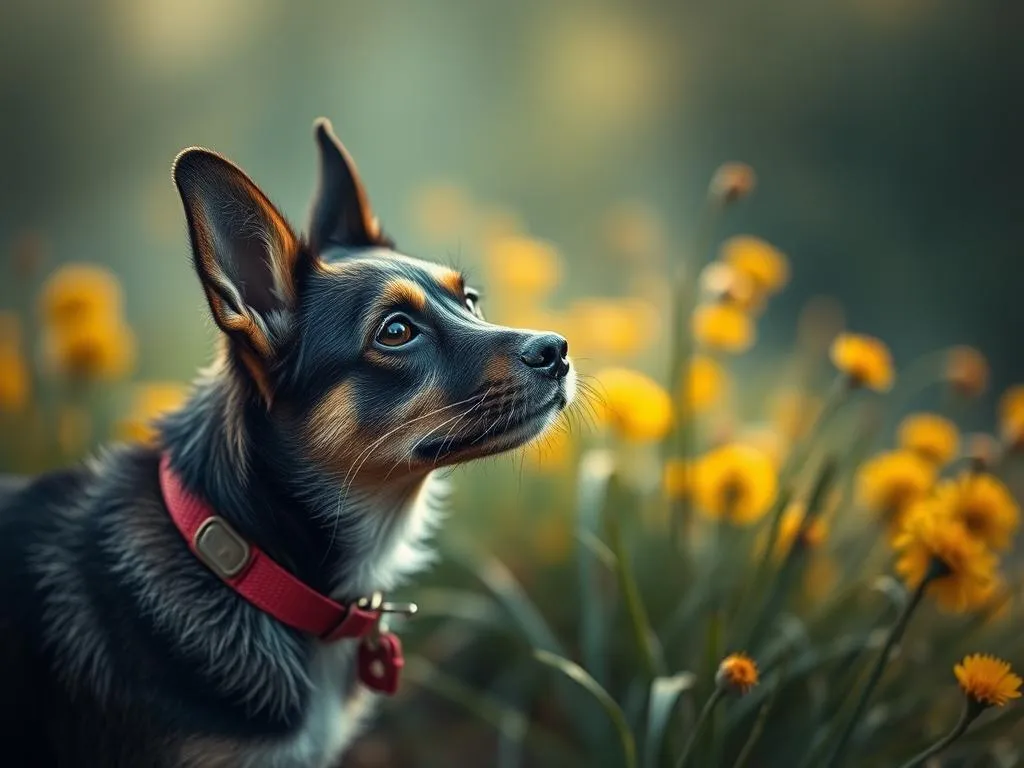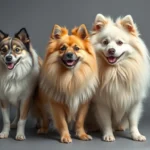
Introduction
Dog breeds have captured the hearts of many across the globe, making them one of the most beloved companions in human history. Among these breeds, the Dorgi, a charming designer dog, has gained popularity due to its unique combination of the Corgi and Dachshund. Understanding different dog breeds is crucial for potential owners, ensuring they choose a pet that fits their lifestyle and preferences. This article delves into the Dorgi, exploring its origins, characteristics, and care needs, while also comparing it to related breeds.
Understanding Dog Breeds
Definition of Dog Breeds
A dog breed is a specific group of domestic dogs that share distinct characteristics, including physical appearance, temperament, and behavior. The classification of breeds is significant because it helps potential dog owners understand what to expect in terms of care, training, and companionship. Each breed has its unique traits, which can greatly influence the experience of dog ownership.
The Role of Dog Breeds in Society
Historically, dog breeds have played various roles in society. From herding and hunting to companionship and service, each breed has been developed with specific functions in mind. For instance, working breeds might excel in tasks requiring strength and endurance, while toy breeds often make perfect lap dogs. Understanding these roles can help owners appreciate the diverse capabilities and personalities of their canine companions.
The Dorgi Breed
Origin of the Dorgi
The Dorgi is a delightful crossbreed that results from breeding a Corgi with a Dachshund. This combination has produced a dog that inherits the playful nature of the Corgi and the charming stubbornness of the Dachshund. The breed gained notable recognition when members of the British royal family, particularly Queen Elizabeth II, were seen with their beloved Dorgis, which further elevated the breed’s status.
Physical Characteristics
Dorgis are typically small to medium-sized dogs, weighing between 20 to 30 pounds and standing around 8 to 12 inches tall. Their appearance can vary significantly, depending on which parent breed they take after more. Common physical traits include:
- Body Shape: Generally elongated, resembling the Dachshund, but with a sturdier build like a Corgi.
- Coat Types: Dorgis can have short to medium-length coats that may be smooth or slightly wiry. Common colors include fawn, black, tan, and various combinations of these.
- Distinctive Features: Their large, expressive eyes and floppy ears are often endearing traits that make them particularly charming.
Temperament and Behavior
The Dorgi is known for its friendly and playful nature. They are intelligent and eager to please, which makes them relatively easy to train. Here are some key temperament traits:
- Affectionate: Dorgis thrive on companionship and enjoy being around people and other pets.
- Playful: They have a playful spirit and are often happy to engage in games, making them great family pets.
- Loyalty: This breed is known for its loyalty to its family, which can make them protective, though not overly aggressive.
Socialization is essential for Dorgis, particularly as puppies. Early exposure to various environments, people, and other animals can help them develop into well-rounded adult dogs.
Health Considerations
Like all breeds, Dorgis may be prone to certain health issues. Some common concerns include:
- Back Problems: Due to their elongated bodies, Dorgis can be susceptible to intervertebral disc disease.
- Obesity: This breed loves to eat, so monitoring their diet and exercise is crucial to prevent obesity.
- Dental Issues: Regular dental care is important since smaller breeds often face dental problems.
With proper care, Dorgis can live healthy lives, typically between 12 to 15 years. Regular vet check-ups and preventive care can help mitigate many health concerns.
Caring for a Dorgi
Grooming Needs
The grooming requirements for a Dorgi depend largely on its coat type. Here are some tips:
- Coat Maintenance: Dorgis with shorter coats require less grooming, while those with longer or wirier coats may need regular brushing to prevent matting.
- Recommended Tools: A slicker brush and a comb are excellent tools for keeping their fur healthy. Bathing should be done as needed, typically every few months.
Exercise Requirements
Dorgis are energetic dogs that require regular exercise to keep them healthy and happy. Daily walks, playtime in a secure yard, or engaging in games like fetch can help meet their exercise needs. Aim for at least 30 to 60 minutes of physical activity each day to maintain their fitness levels.
Nutrition and Diet
A well-balanced diet is essential for a Dorgi. Here are some considerations:
- Nutritional Needs: Dorgis benefit from high-quality dog food that meets their specific dietary needs, particularly for small to medium breeds.
- Portion Control: Due to their propensity for weight gain, portion control is crucial. Consult your veterinarian for recommendations on feeding amounts based on age, weight, and activity level.
Training Tips
Training is important for a Dorgi, particularly because they can inherit the stubbornness of their Dachshund parent. Here are some effective training tips:
- Basic Commands: Start with basic commands such as “sit,” “stay,” and “come.” Positive reinforcement techniques, such as treats and praise, can encourage good behavior.
- Socialization: Early socialization helps Dorgis adapt to different situations and reduces the likelihood of behavioral issues later on.
Comparison with Other Dog Breeds
Dorgi vs. Corgi
While the Dorgi shares traits with the Corgi, there are notable differences:
- Temperament: Both breeds are friendly and affectionate, but Dorgis may exhibit more playfulness due to their Dachshund heritage.
- Care Needs: Corgis typically require more exercise due to their herding background, while Dorgis can adapt to a slightly less active lifestyle.
Dorgi vs. Dachshund
Comparing the Dorgi and the Dachshund reveals some similarities and differences:
- Physical Traits: Dorgis tend to have a sturdier build, while Dachshunds are more elongated and can have a wider variety of coat lengths.
- Behavioral Traits: Both breeds can be stubborn, but Dorgis often display a more playful and social demeanor.
Other Designer Breeds
The popularity of designer breeds has led to the creation of various hybrids. Some notable comparisons include:
- Goldendoodle: A mix between a Golden Retriever and a Poodle, known for its intelligence and hypoallergenic coat.
- Labradoodle: A cross between a Labrador Retriever and a Poodle, praised for its friendly nature and adaptability.
Each designer breed has unique characteristics, but like the Dorgi, they often inherit traits from both parent breeds, making them appealing to a wide range of dog lovers.
Finding a Dorgi
Adoption vs. Breeding
When considering bringing a Dorgi into your home, you have the option of adopting or purchasing from a breeder:
- Adoption: Adopting a Dorgi from a shelter can be a rewarding experience. Many dogs in shelters are looking for loving homes, and adoption fees are often lower than purchasing from a breeder.
- Breeding: If you choose to buy from a breeder, ensure they are reputable and prioritize the health and wellbeing of their dogs.
Cost of Owning a Dorgi
Owning a Dorgi comes with both initial and ongoing costs:
- Initial Costs: Adoption fees can vary, typically ranging from $100 to $500, while purchasing from a breeder may cost anywhere from $800 to $2,000.
- Ongoing Costs: Consider the expenses related to food, grooming, veterinary care, and training, which can add up over the years.
Conclusion
The Dorgi is a delightful and versatile breed that can make an excellent family pet. With their playful nature, affectionate demeanor, and adaptability to various living situations, they can fit well into many households. Understanding the unique needs and characteristics of Dorgis, as well as comparing them to other breeds, is essential for potential owners. Ultimately, when choosing a dog, consider your lifestyle and the commitment required to ensure a happy and healthy life for your new furry friend.









